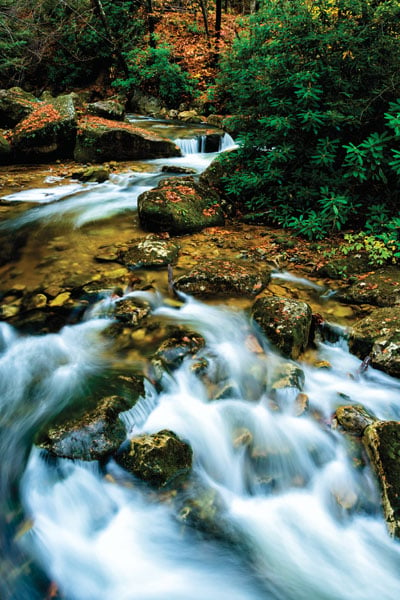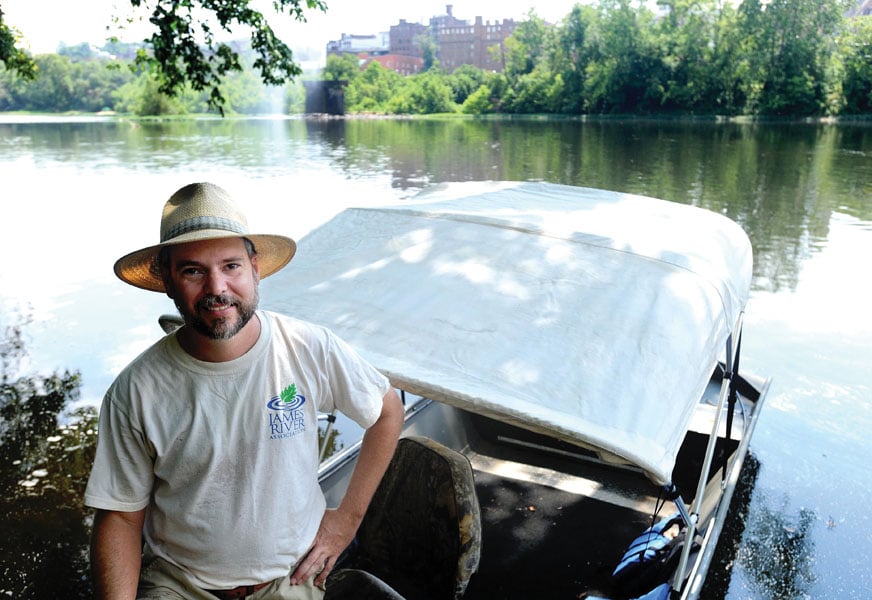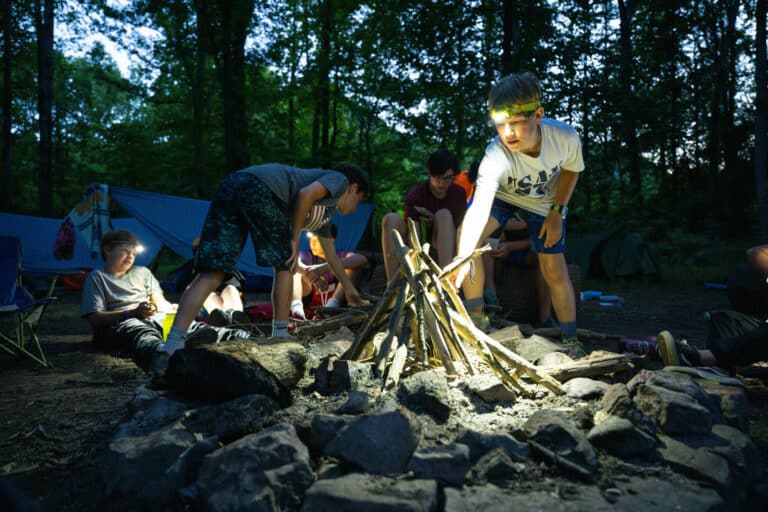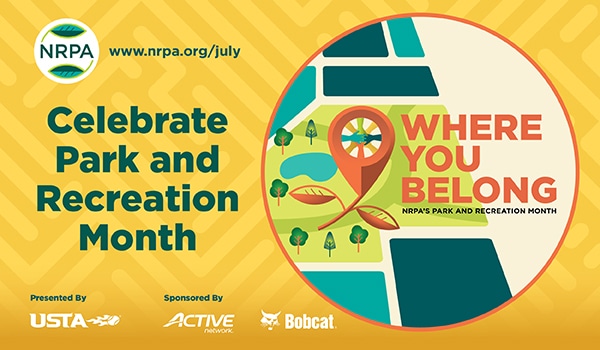These organizations work hard in the field and in the courtroom to safeguard our region’s rivers and streams. Join us in saying thank you to the top groups protecting the places where we play.
American Whitewater
Mission: To conserve and restore America’s whitewater resources and to enhance opportunities to enjoy them safely.
Founded in 1954, American Whitewater (AW) has long served as a resource for paddlers across the country. With river levels, rapid descriptions, even real-time hazard updates, AW’s website is the most comprehensive source of information for whitewater enthusiasts.
But that’s not the only thing AW provides. Did you know that AW was one of the leading organizations involved in the passing of the National Wild and Scenic Rivers Act in 1968? And did you know that, were it not for the years of negotiations and hard work conducted by AW, recreational dam releases might not be as commonplace as they are today? While AW certainly wants the whitewater community to connect and grow, its focus for the past few decades has been improving accessibility and protection of these rivers we hold so dear.
“I’ve been at American Whitewater for 12 years,” says Executive Director Mark Singleton. “I came to it because I was a paddler, and our staff at AW have followed very similar tracks. We’re all really committed to rivers and the opportunities rivers present, not just for recreation but for healthy communities and healthy ecosystems around the river. We take care of our paddling, and by taking care of our paddling it thus takes care of us.”
Trout Unlimited
Mission: To conserve, protect, and restore North America’s coldwater fisheries and their watersheds.
With 400 chapters from Maine to Montana, and even Alaska, Trout Unlimited’s (or TU’s) reach is far. Over 150,000 members, mostly hunters and anglers, are committed to helping TU achieve its goal of restoring and conserving coldwater fisheries and their watersheds.
In West Virginia, where freshwater runs aplenty, TU’s volunteers and staff are in the field every week working diligently to ensure that the water flowing downstream into neighboring states is as clean as possible. In addition to thwarting water quality threats like fracking and advocating for permanent management of wild areas like the proposed Birthplace of Rivers National Monument, TU also works in smaller ways to help the bigger picture.
For example, the Chesapeake Bay Foundation funds some of TU’s work with farmers in which they build stream buffers and hard crossings for cattle to help eliminate streambank erosion. On the Middle Fork of the Williams River, where acid rain had nearly exterminated the native brook trout, TU volunteers formed a conveyor belt of humans, which they called the “Bucket Brigade,” and handed several tons of limestone sand bucket by bucket to nearby ditches. A few years later, the brook trout were back and the pH of the river was restored.
“It’s really important to me to make the connection between the sport that I do and the impact that I have on that sport,” says Philip Smith, the immediate past chair of West Virginia’s TU chapter. “The theme here is collaboration. You have to be able to work with agencies and other non-profits to really leverage successful conservation.”
Appalachian Voices
Mission: Protecting the Central and Southern Appalachian Mountains
For nearly 20 years, Appalachian Voices has given a voice to those without, be they polluted rivers, stripped mountaintops, or overlooked citizens. Whether in the field or in the courtroom, Appalachian Voices approaches each and every water quality case with the scientific backing and political know-how to hold polluters accountable and enforce the laws meant to protect our rivers and streams.
“As we grew, we came to recognize how many of the biggest threats to the quality of life and ecology of our region relate to water,” says Matt Wasson, Director of Programs and former Executive Director. “Clean water is important not just from an environmental standpoint but also an economical standpoint. It’s hard to attract entrepreneurs to an area where drinking water sucks.”
Appalachian Voices was instrumental in drawing the public eye to the Dan River coal ash spill in 2014, and to the coal companies in Kentucky that were falsifying their Clean Water Act reports. Though the coal industry is largely on the decline, the organization’s water work must now address the issue of coal ash ponds and monitoring the drinking water around these leaky impoundments.

Chesapeake Bay Foundation
Mission: Save the Bay™, and keep it saved.
When you think of the Chesapeake Bay, what likely comes to mind is the bay itself, with its placid blue waters and picturesque skies. Yet did you know that the Chesapeake Bay watershed encompasses six states and 64,000 square miles from Virginia to New York? It is perhaps this fact alone that makes protecting and restoring the Bay so important, and yet so challenging.
“Everything that happens in these states affects the Chesapeake Bay, but the hard part has been getting them to all work together and be on the same page,” says Kenny Fletcher, a spokesperson for the Foundation. “We’ve had agreements in the ‘70s, ‘80s, and ‘90s between the states, but they have been voluntary so they haven’t been enforced.”
With the Chesapeake Bay Clean Water Blueprint, the Foundation hopes to change that. This legally binding agreement holds the six states within the Bay’s watershed accountable to target pollution and meet EPA limits by 2025.
West Virginia Rivers Coalition
Mission: Conserving and restoring West Virginia’s exceptional rivers and streams.
In the spring of 1990, members of the West Virginia chapter of the Sierra Club and the American Whitewater Affiliation came together with a united goal—protect West Virginia’s rivers and streams from encroaching degradation. The West Virginia Rivers Coalition was the first statewide water advocacy organization east of the Mississippi, and their work early on, and even now, deals largely with the protection of the fragile headwaters in the Monongahela National Forest.
“We all have a stake in this,” says Executive Director Angie Rosser. “West Virginia is blessed with an abundance of fresh water that not everywhere in this country, or world has. We’re the mountain state, but we’re also the headwater state, so what happens in West Virginia matters not just for West Virginia, but for all of those folks who live downstream of us.”
In the wake of the 2014 Charleston water crisis, the West Virginia Rivers Coalition stood side by side with the 300,000 West Virginians affected by the chemical disaster and rallied for more protection, and more accountability. The organization is currently spreading word about the proposed Birthplace of Rivers National Monument in the Monongahela National Forest, which, if designated, would protect the headwaters of six major rivers in West Virginia.
Friends of the Cheat
Mission: To restore, preserve, and promote the outstanding natural qualities of the Cheat watershed.
When an illegally sealed underground coal mine blew out in 1994, releasing millions of gallons of acid mine drainage into the Cheat River, concerned citizens, paddlers, and private stakeholders came together to form Friends of the Cheat (FOC). The newly founded organization established the River of Promise Task Force, a group of local, state, and federal agencies as well as local businesses, industries, and academics, committed to seeing the clean up of the pollution from beginning to end.
Now, two decades later, the Cheat River pH is no longer impaired, and the river even hosts a thriving fish population from mouth to main stem. Though acid mine drainage reclamation will continue to be an ongoing focus for FOC, the organization is putting its energy toward its third pillar—promotion.
“We’d really like to see the Cheat River as more of a community green space that’s also serving the whitewater community and the hiking community and the sportsmen community,” says FOC Executive Director Amanda Pitzer. “We’re not only restoring waterways, we’re bringing economic growth to the community by highlighting what we think is great about this area.”
The FOC recently announced its purchase of a nine-mile tract of land along the Cheat River Narrows, where the organization plans to develop a multipurpose rail-trail in the years to come.
Youghiogheny Riverkeeper
Mission: To defend against further pollution, to improve water quality, and to conserve the natural ecology and character of the Youghiogheny River and its tributaries.
The Youghiogheny Riverkeeper operates from Oakland, Md., to the mouth of the Yough basin in McKeesport, Penn. As part of the Waterkeeper Alliance, and in partnership with the Mountain Watershed Association, the Youghiogheny Riverkeeper is rooted in the protection of this valuable watershed. As threats from shale gas extraction and crude oil transportation continue to grow, and lingering effects of coal mining persist, the Youghiogheny Riverkeeper’s work now is more important than ever.
“I love that when I go to sleep at night, I know that everything I did all day was to protect this river and to improve it for those who live in this river valley and come to play in this river valley and that’s a good feeling,” says Youghiogheny Riverkeeper Krissy Kasserman. “I’m proud of what I do.”
Under Kasserman’s guidance, the organization has been fighting tooth and nail in opposition of the Curry Mine, a 588-acre strip mine proposed in the Yough River Gorge less than 1,000 feet from the river and within spitting distance of the Great Allegheny Passage, both of which are recreational gems in the region. Just 10 years after its initial proposition, Kasserman feels confident that plans for the mine have finally met their demise.
The Youghiogheny Riverkeeper also oversees the Swimmable Waters Program, an initiative that monitors levels of E. coli in popular swimming holes around the area. The data is made available each summer to the public through the Waterkeeper Alliance’s Swim Guide (theswimguide.org).
James River Association
Mission: We provide a voice for the river and take action to promote conservation and responsible stewardship of its natural resources.
For 3.1 million people, the James River provides not just recreational opportunities but also drinking water. In 1976, the James River Association (JRA) was formed to educate the public about the significance of this river, and also to help restore and protect it. Back then, the James was little more than a dumping ground for nearby industries, and though the water quality of the James has since improved greatly, the threats still exist.
“Currently the James River is at risk from 1,100 toxic storage sites, up to 5 billion gallons of coal ash, and millions of gallons of crude oil traveling along the shores of the James,” says Upper James Riverkeeper Pat Calvert. “This valuable natural resource is a critical part of our history, daily lives, and the legacy we leave for future generations. It’s for me less a job than a privilege to safeguard these beautiful waters.”
In 2007, the JRA successfully convinced Congress to designate the James as America’s Founding River. Given its historical significance, it seems logical that the James would be safe from pollution in perpetuity. Yet the JRA’s work is far from over, and its ongoing advocacy campaign, Our River at Risk, addresses and informs the public on threats to the James and its tributaries.
Chattahoochee Riverkeeper
Mission: To advocate and secure the protection and stewardship of the Chattahoochee River, its tributaries, and watershed in order to restore and preserve their ecological health for the people and wildlife that depend on the river system.
Created with the intent to hold the city of Atlanta responsible for dumping millions of gallons of sewage into the Chattahoochee, the Chattahoochee Riverkeeper has successfully improved the quality of this important watershed and its tributaries over the past 22 years. In addition to fighting present day threats from industry stormwater runoff and Clean Water Act violations, the Chattahoochee Riverkeeper also fosters educational opportunities for younger generations through its floating classrooms. Each year, the organization takes some 6,000 kids on the water to teach them the importance of this natural resource and how they can protect it.
“The Chattahoochee River within the National Recreation Area was named one of the top 100 trout fisheries in the nation by Trout Unlimited,” says Chattahoochee Riverkeeper Jason Ulseth. “Over 3 million people come to this river park every single year, and they depend on plentiful clean water to enjoy this wonderful resource.”
To date, the organization has removed over 800 tons of trash from the river system through its various trash clean ups and volunteer days. It continues to oversee facilities identified as potential polluters and water monitoring programs throughout the watershed.
MORE WATER HEROES
Check out these 23 additional conservation-minded organizations and non-profits who are working to protect the rivers and streams in your backyard.
French Broad Riverkeeper
Founded in: 2001
Serves: Transylvania, Henderson, Buncombe, Haywood, and Madison counties in western North Carolina
Focus: The French Broad Paddle Trail, bacteria monitoring, point source monitoring, Muddy Water Watch, pharmaceutical waste, hazardous waste, coal ash
West Virginia Headwaters Waterkeeper
Founded in: 2006
Serves: West Virginia’s Southern Monongahela National Forest
Focus: Water policy, pipeline water quality monitoring, proposed Atlantic Coast Pipeline research, proposed Birthplace of Rivers National Monument
Chattooga Conservancy
Founded in: 1991
Serves: Oconee County, S.C. through Rabun County, Ga.
Focus: Monitoring and oversight of the U.S. Forest Service, Chattooga Quarterly, Stekoa Creek restoration campaign, land trust, public education and outreach
Catawba Riverkeeper Foundation
Founded in: 1997
Serves: 24 counties of the Catawba-Wateree River watershed in North and South Carolina
Focus: Energy-water collision, Interbasin transfer issues, Garden Parkway, Duke Catawba Hydro Project relicensing, hydraulic fracking, pharmaceuticals and endocrine disruptors, land planning and smart growth, sewage and treatment, sedimentation, Muddy Water Watch, stormwater runoff, Upper Catawba Basin, water use and efficiency
American Rivers
Founded in: 1973
Serves: United States
Focus: Protecting water supplies, clean water, Blue Trails, dam removal, hydropower reform
Yadkin Riverkeeper
Serves: 21 counties in North Carolina’s Yadkin Pee Dee River Basin
Focus: Riverkeeper Protection Program, coal ash, Alcoa, Pure Farms/Pure Water, High Rock Lake pollution, fracking, Operation Medicine Cabinet, Monroe Bypass
Kentucky Riverkeeper
Founded in: 2001
Serves: 42 counties within the Kentucky River Basin
Focus: Education, research and monitoring, service learning, advocacy, Kentucky River Water Trail
Potomac Riverkeeper Network
Founded in: 2000
Serves: Headwaters of the Potomac from West Virginia through the Shenandoah to Washington, D.C.
Focus: Pollution reduction, river access and recreation, algae elimination campaign, Get the Cattle Out Campaign
Coosa Riverkeeper
Founded in: 2010
Serves: 39,133 acres of water on five lakes, from Lake Neely Henry to Lake Jordan, through east Alabama.
Focus: Riverkeeper patrol, Water quality monitoring, public education, Save the Skinny Water, clean fish and healthy communities, Coosa Canoe and Kayak Fishing Tournament
Tennessee Riverkeeper
Founded in: 2009
Serves: The Tennessee River and its tributaries, including the two headwater tributaries: the Holston River and French Broad River
Focus: Monitoring pollution, sewage, industrial discharges; awareness and education; litigation
Upper Watauga Riverkeeper
Founded in: 2008
Serves: Banner Elk, Boone, Blowing Rock, Valle Crucis and Watauga Lake in North Carolina
Focus: Mercury pollution, Hellbender salamanders, air pollution, mountaintop removal coal mining, water quality monitoring
Broad River Alliance
facebook.com/broad-river-alliance
Founded in: 2015
Serves: Broad River Watershed
Focus: Coal ash, drinking water quality, water quality monitoring
Alabama Rivers Alliance
Founded in: 1996
Serves: The state of Alabama
Focus: Water policy, enforcement, agency coordination, adequate funding, water resource planning, coal ash, dam safety laws, tar sands mining, stormwater runoff
Clean Water for North Carolina
Founded in: 1984
Serves: The state of North Carolina
Focus: Empowered, just communities; holding polluters accountable; safe, affordable water for all; fracking; water justice and privatization; well user protection; NC SAVE$ ENERGY; Pigeon River clean up and protections; urban community streams
Friends of the Blackwater
Founded in: 2000
Serves: The Blackwater Canyon
Focus: Allegheny Highlands Climate Change Impacts Initiative, Save Our Squirrel, The J.R. Clifford Project, The Northfork Watershed Project, stopping fracking on Eastern National Forests, Monongahela National Forest Watch Dog Program
Friends of the North Fork of the Shenandoah
Founded in: 1988
Serves: The North Fork of the Shenandoah River
Focus: Seven Bends State Park, Lake Laura Research, water quality monitoring, drinking water research, E.coli Presence at high-use recreation sites
Friends of Big Ivy
Founded in: 2014
Serves: Big Ivy Forest and the Ivy Creek headwaters
Focus: Proposed long-term protections for Big Ivy watershed as part of upcoming U.S. Forest Service management plan
Friends of the Rappahannock
Founded in: 2008
Serves: The Rappahannock river, watershed, and community
Focus: Save the Crabs, Then Eat ‘Em; fertilizer impacts; fracking; agricultural best management practices; oyster restoration; rainscape retrofitting; river cleanups; Student Stream Team Program
Hiwassee River Watershed Coalition
Founded in: 1995
Serves: The creeks, lakes, and rivers that flow into the Hiwassee River, from northern Georgia to the southwest corner of North Carolina
Focus: Stream and riparian restoration, environmental education for kids, improving recreational access, erosion and sediment control, stormwater runoff
Conasauga River Alliance
Founded in: 1999
Serves: The Conasauga River watershed in Tennessee and Georgia
Focus: Septic system workshops, Project WET, Varnell Springs, streambank erosion, Limestone Spring restoration, stormwater runoff, Petty Dairy
Tallulah River Watershed Council
Founded in: 2011
Serves: The Tallulah River Watershed throughout Rabun County, Ga.
Focus: Watershed ecology, water quality research, community outreach, Inter-basin water transfer, Parrot Feather invasive species








